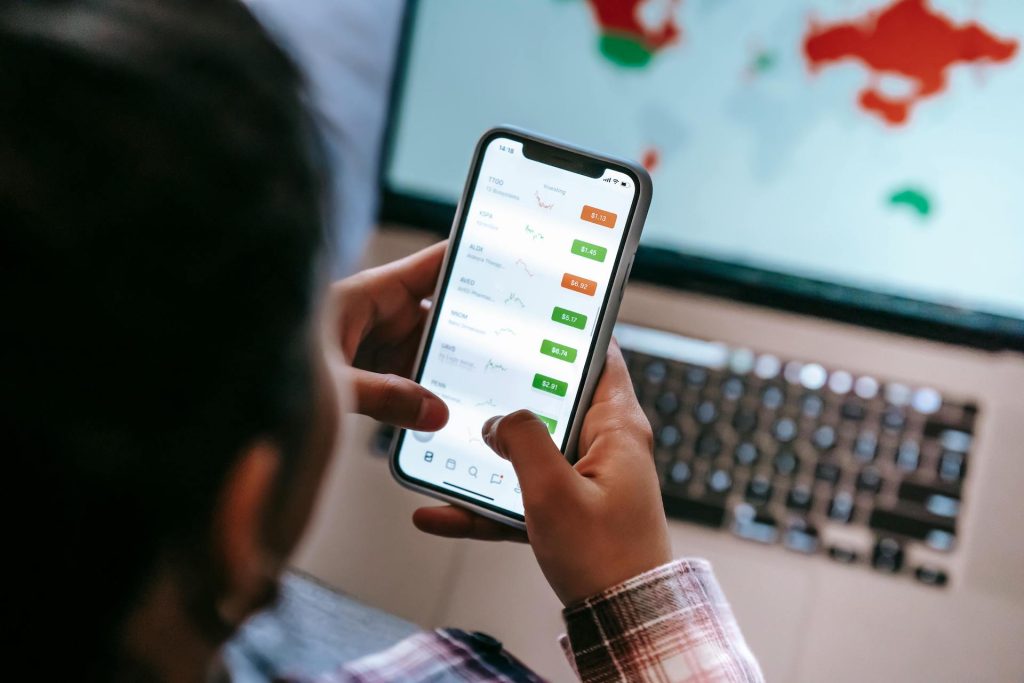Starting as a forex trader can be exhilarating but intimidating, as many newbies quickly become overwhelmed by fluctuating numbers, 24/5 trading opportunities, and the challenge of finding consistent success.
While many well-known strategies exist, here are three unconventional but highly effective tips that could redefine your trading journey. By focusing on mindset and behaviour, these insights can help prevent common mistakes and create a more disciplined trading experience.
1. Don’t Look at Your Profit/Loss Constantly
One of the hardest habits for a new trader to break is constantly checking their Profit/Loss (P/L) statement. However, focusing too much on these figures can cloud your judgment and reinforce poor decision-making habits. Here’s why you might want to keep your P/L out of sight:
- Avoid Emotional Biases: Watching your P/L closely can create emotional responses that often lead to biases. A few wins might build overconfidence, while a series of losses could stir fear or despair, both of which can cloud judgment and derail sound strategies.
- Preserve Objectivity: Regularly checking profits and losses can become a habit that disrupts your objectivity. When you remove this distraction, you allow yourself to focus on developing a solid trading strategy, recognising market patterns, and analysing entry and exit signals without emotional interference.
- Track Progress with a Trading Journal: Instead of relying on P/L as your primary performance indicator, maintain a detailed trading journal. Track your trades, noting key details such as entry and exit points, the logic behind your decisions, market conditions, and post-trade reflections. This practice helps reveal patterns and areas for improvement, allowing you to refine your strategy without the anxiety of immediate financial outcomes.

How to Implement This Strategy:
- Disable the P/L Display: Some trading platforms allow you to customise your interface. If necessary, hide your P/L from the main screen or cover it with tape.
- Focus on Trade Quality: Analyze each trade based on its setup, strategy, and adherence to your plan rather than its immediate outcome.
- Review Weekly, Not Daily: Instead of checking your P/L every day, review your performance weekly or monthly using your journal as a guide. This method lets you focus on long-term growth.
By reducing your focus on immediate profit and loss figures, you’ll find it easier to remain disciplined and avoid impulsive, emotionally driven decisions. This approach encourages a mindset geared toward long-term profitability rather than short-term success.
2. Take Time Off from Trading
For new traders, stepping away from the market may seem counterproductive. After all, the forex market operates 24 hours on weekdays, presenting an endless stream of opportunities. However, taking regular breaks can be beneficial for maintaining focus, avoiding burnout, and preserving mental clarity.
- Avoid Overload: The constant availability of the forex market can be overwhelming, and trading fatigue is real. Without proper breaks, the pressure to always “stay in the game” could lead to overtrading or decision fatigue, often resulting in costly mistakes.
- Maintain a Fresh Perspective: Stepping away occasionally allows you to come back with a clear mind and a fresh outlook on market trends and setups. For example, when dealing with personal matters like moving or coping with illness, trading, while distracted, can amplify losses due to diminished focus.
- Trust in Market Opportunities: It’s natural to feel missing out if you skip a trading day. However, the forex market provides ample opportunities, and taking time off won’t prevent you from capitalising on future setups. It’s more important to be mentally ready and well-rested to identify and act on optimal trade scenarios.
Practical Tips for Taking Time Off:
- Set Regular Breaks: Plan specific days or times you won’t trade to ensure a healthy work-life balance.
- Evaluate Your Mental State: Before trading, assess your mental clarity. Consider taking the day off if you’re distracted, anxious, or tired.
- Create a Schedule: If you prefer a structured approach, create a weekly or monthly trading schedule incorporating dedicated time off.
Taking time off may seem unusual, but it can be highly advantageous. A well-rested trader is more alert, makes better decisions, and can execute strategies precisely. Quality over quantity applies in trading, and time away could lead to more profitable trading sessions.

3. Take Only One Trade Per Day
For many new traders, the urge to trade frequently is strong. It’s easy to assume that the more trades you make, the better your chances of hitting profitable moves. However, overtrading is a common trap that often results in unnecessary losses and diminished focus.
- Avoid Overtrading and Burnout: Placing multiple trades in a single day can quickly lead to burnout and a scattered focus. Instead of taking many trades, identify one high-quality setup daily. This approach encourages patience and helps avoid impulsive trades based on fleeting market movements.
- Improve Precision and Selectivity: When you restrict yourself to a single trade daily, you’re more likely to be selective about the trades you enter. This habit helps reinforce a thoughtful approach, allowing you to evaluate each opportunity carefully before committing.
- Enhance Analysis Skills: Focusing on one trade gives you more time to analyze the factors influencing that particular market movement. This can deepen your understanding of trends and technical indicators. Over time, this practice can sharpen your trading intuition and improve your ability to spot high-probability setups.
How to Make the Most of One Trade per Day:
- Set Clear Criteria: Define the technical or fundamental conditions that a trade must meet before you consider entering it. This helps you identify high-quality trades.
- Analyse Market Trends: Study market trends and key economic indicators to select the most promising setups.
- Document and Reflect: Keep a journal entry for each trade, noting why you chose it, what went right or wrong, and what you could have done differently. This practice allows you to review and refine your approach consistently.
Although taking only one trade per day may feel restrictive, this disciplined approach can prevent overtrading and lead to better outcomes. Focusing on trade quality over quantity can also help you achieve more consistent profits and improve your analytical skills.
While these tips might seem counterintuitive, they can help you develop a disciplined, sustainable trading practice that prioritises long-term success over short-term gains. By avoiding constant monitoring of your P/L, taking breaks, and limiting your trades, you’ll cultivate a healthier trading mindset and reduce impulsive decisions. For a newbie forex trader, embracing these unusual strategies could be the key to unlocking consistent and profitable trading behaviour.
Each of these tips builds upon the other, forming a foundation that promotes mental clarity, discipline, and careful analysis—all essential qualities for navigating forex trading challenges. Start incorporating these tips today to see how they positively impact your trading journey, allowing you to make well-informed, confident decisions in the world of forex trading.
At Vestrado, we believe in empowering traders like you to make informed decisions that build a strong foundation for success. So, as you explore the world of forex trading, stay curious, stay disciplined, and trust that each small step is paving the way toward your financial goals. Let’s trade smartly, grow confidently, and make every trade count.





